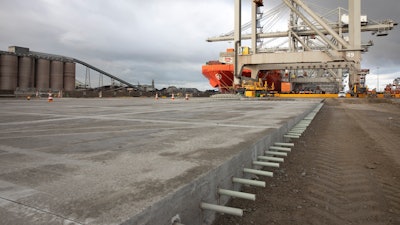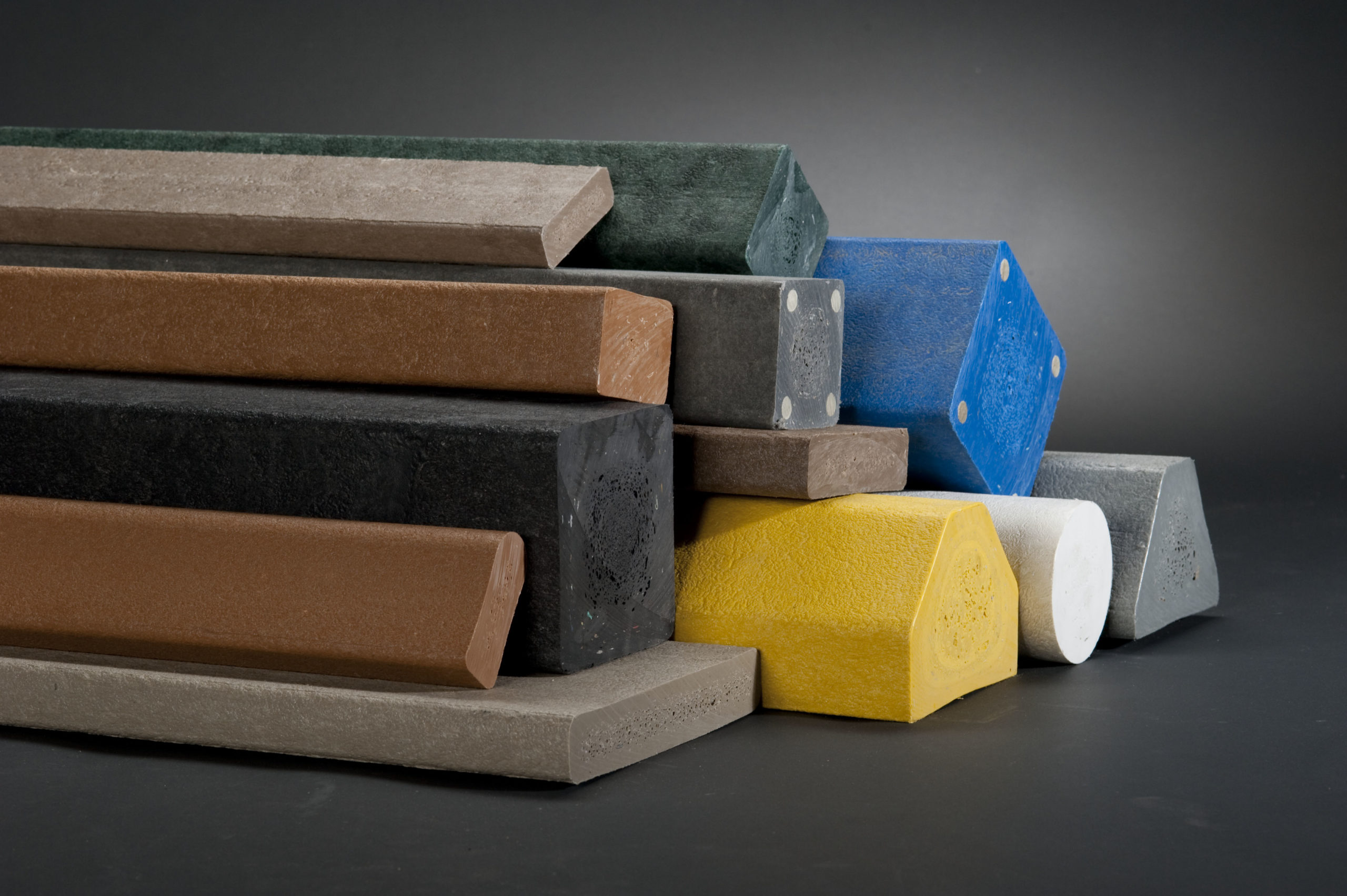Composites: The Future of Sustainable Construction Materials
Composites: The Future of Sustainable Construction Materials
Blog Article
Unlocking the Environmental Advantages of Recycled Composites in Building And Construction and Layout
In the realm of building and construction and layout, the usage of recycled compounds holds substantial assurance for enhancing sustainability practices and reducing ecological impact (composites). By incorporating these ingenious materials, there is a possible to deal with critical problems such as waste reduction, power conservation, and a reduction in carbon impact. The shift in the direction of an extra sustainable future in these markets depends upon opening the full capacity of recycled compounds. This conversation will explore the diverse advantages and challenges related to incorporating recycled compounds into building and style, supplying a glimpse into the transformative possibilities that exist in advance.

Ecological Effect Decrease
The decrease of environmental impact with using recycled composites in building and construction and style plays an essential function in lasting methods. By integrating recycled composites into building materials, the building and construction sector can considerably decrease its carbon footprint and add to a much more environment-friendly future. These lasting products, made from repurposed plastics, timber fibers, or various other recycled elements, supply a sensible choice to standard building products without endangering on top quality or toughness.
Recycled composites help draw away waste from garbage dumps and reduce the requirement for removing raw materials, thus conserving natural sources. Furthermore, the production process of these compounds commonly eats less power and sends out fewer greenhouse gases contrasted to creating virgin materials (composites). This shift towards making use of recycled composites not just lessens environmental damage but likewise promotes a round economy by urging the reuse of materials that would otherwise be disposed of
Waste Minimization
With an emphasis on lessening waste in construction and layout, the combination of recycled compounds offers a lasting option to minimize environmental effect. Waste minimization is a critical aspect of lasting techniques, and making use of recycled compounds presents a possibility to achieve this goal successfully. By utilizing materials that have already served their first function, such as recycled plastics or recovered timber fibers, the construction and design markets can dramatically reduce the amount of waste produced and sent out to landfills.
Recycled composites have the prospective to draw away substantial amounts of waste from standard disposal approaches, contributing to a much more round economic situation where resources are made use of successfully. In addition, the manufacturing procedure of recycled composites commonly eats much less energy and creates less discharges compared to virgin products, further decreasing the environmental footprint of construction and design projects.
Implementing waste minimization strategies with the consolidation of recycled composites not only helps in conserving all-natural sources but additionally promotes a more lasting strategy to structure and creating for a greener future.
Energy Conservation
Including recycled composites not only minimizes waste in construction and layout yet likewise plays a critical duty in improving energy preservation techniques within the sector. The use of recycled composites in construction can dramatically add to energy preservation with numerous means. The manufacturing of virgin materials generally calls for considerable power inputs, whereas utilizing recycled compounds takes in much less energy, therefore minimizing overall power consumption. Furthermore, incorporating recycled compounds can contribute to much better insulation residential properties in buildings, reducing the demand for excessive home heating or cooling, and as a result decreasing energy use for environment control. The light-weight nature of several recycled composites can lead to lighter structures, calling for much less energy for transport and installment. By advertising using recycled composites in building and construction and design, the industry can make considerable strides in the direction of achieving power performance and decreasing its carbon impact, inevitably contributing to a more sustainable developed setting.
Carbon Footprint Decrease
Enhancing sustainability techniques via the use of recycled compounds in building and design considerably reduces the carbon footprint of the industry. By including recycled products right into the production of composites, the demand for virgin sources reduces, leading to lower energy usage and greenhouse gas discharges connected with traditional production procedures. This reduction in carbon impact is critical in combating environment modification and promoting an extra eco friendly approach to building and construction and layout.
The carbon footprint reduction attained through the fostering of recycled compounds lines up with the international push towards lasting techniques and the reduction of industrial emissions. Eventually, by focusing moved here on the integration of recycled composites, the sector can make significant strides in reducing its carbon impact and adding to an extra lasting future.
Lasting Future
The assimilation of recycled compounds in building and design not just addresses immediate ecological worries however additionally lays a strong foundation for a lasting future in the industry. By including recycled compounds right into building materials and items, the building and design markets can substantially reduce their dependence on virgin resources, causing a more round economy. This change towards sustainability is critical for alleviating the ecological effect of typical building methods, which often result in high degrees of waste generation and resource exhaustion.

Verdict
To conclude, recycled composites offer significant environmental advantages in construction and design by decreasing ecological effect, lessening waste, saving energy, reducing carbon footprint, and promoting a lasting future. Accepting the usage of recycled composites can add to a more environmentally-friendly approach to building and layout, inevitably bring about a much more sustainable and greener future for all.
The decrease of ecological effect with the use of recycled compounds in building and construction and layout plays a critical duty in sustainable practices.With an emphasis on decreasing waste in building and construction and style, the integration of recycled compounds supplies a sustainable solution to lower ecological impact. By promoting the use of recycled compounds in building and design, the sector can make considerable strides in the direction of accomplishing energy performance and minimizing its carbon impact, ultimately adding to a much more lasting developed environment.

Report this page